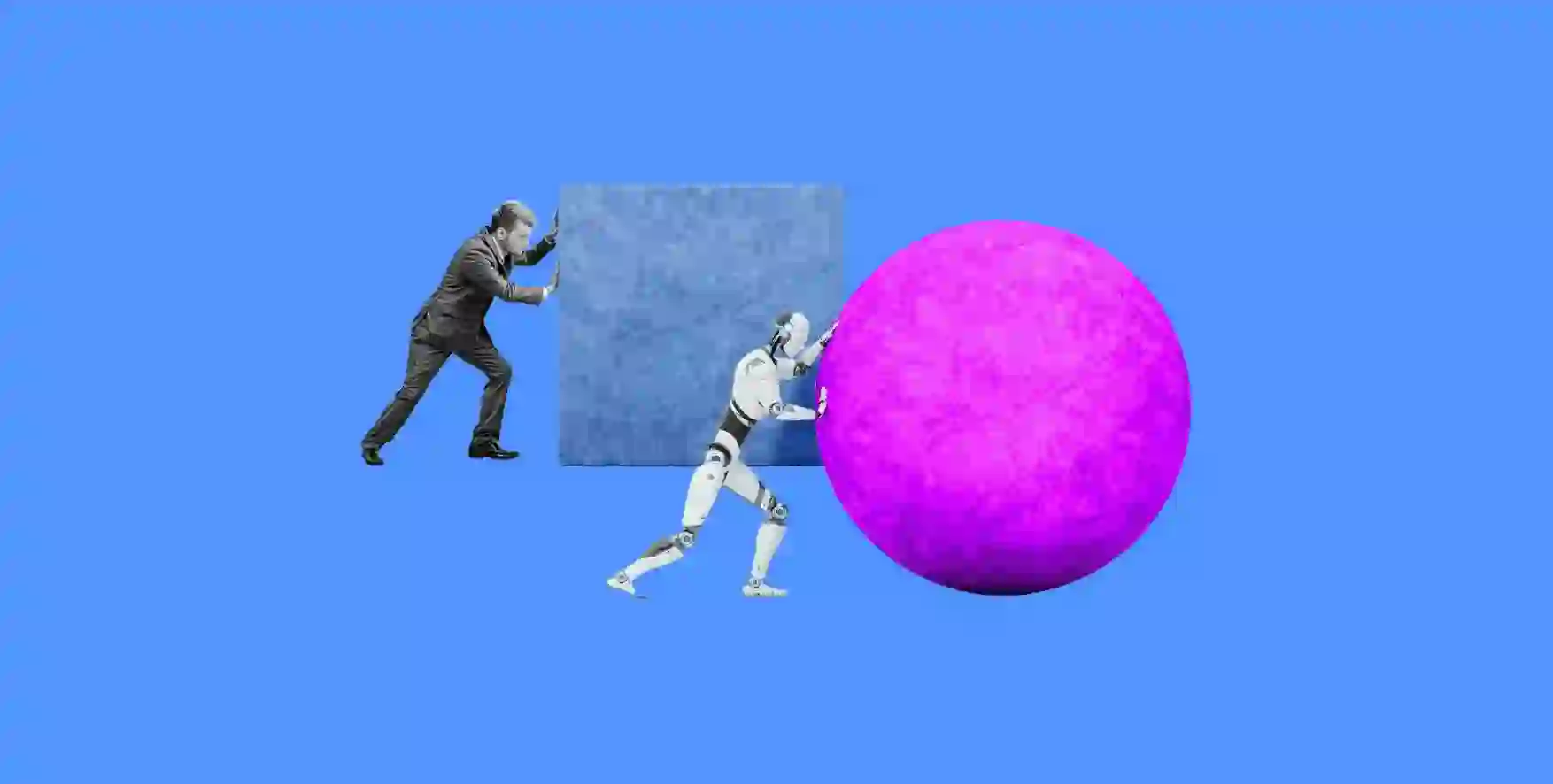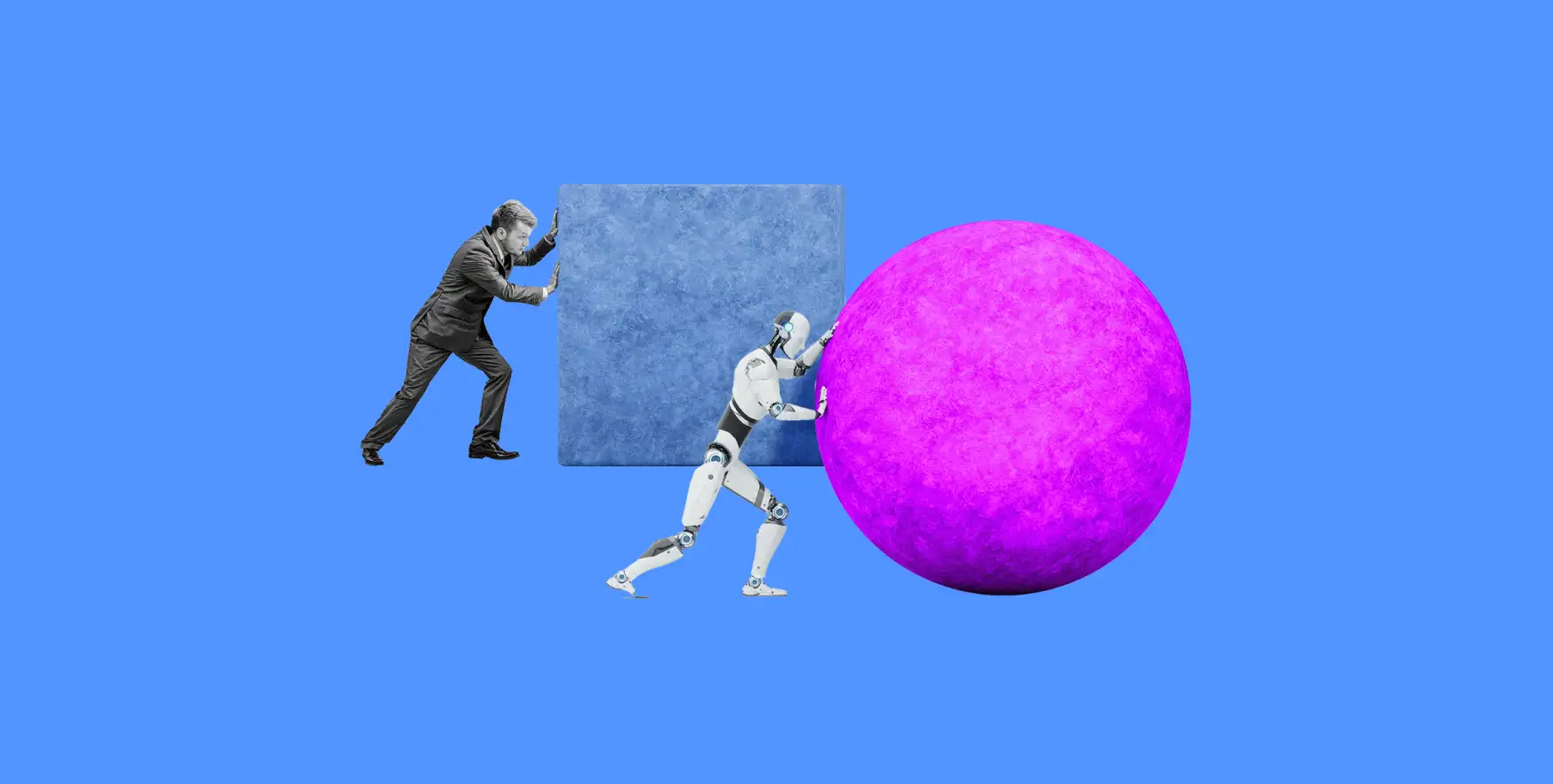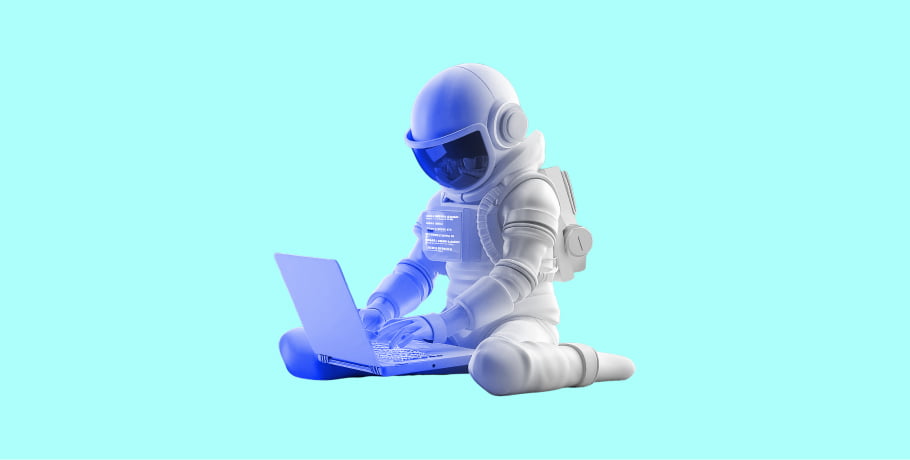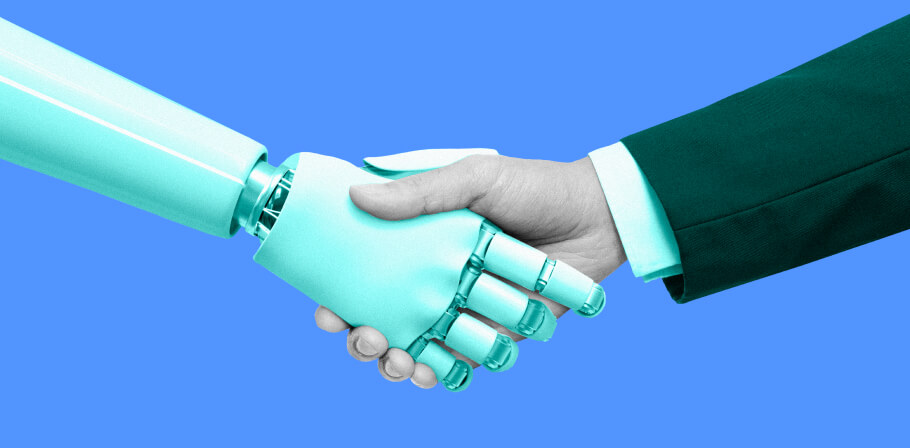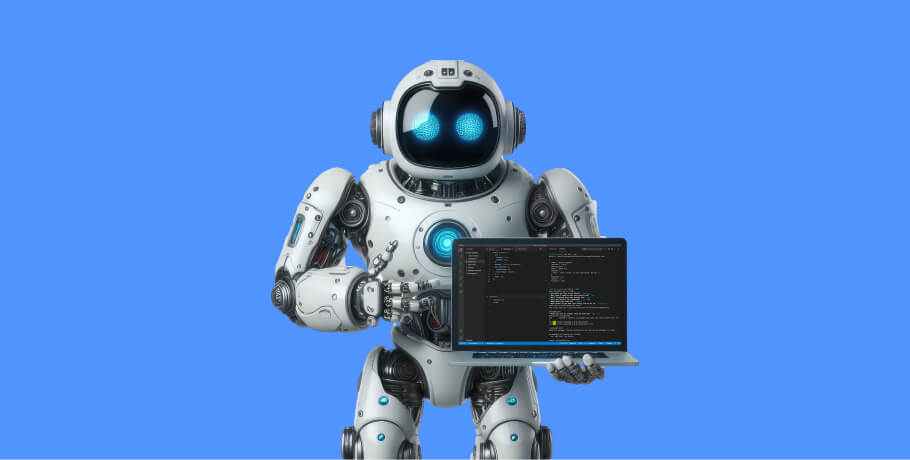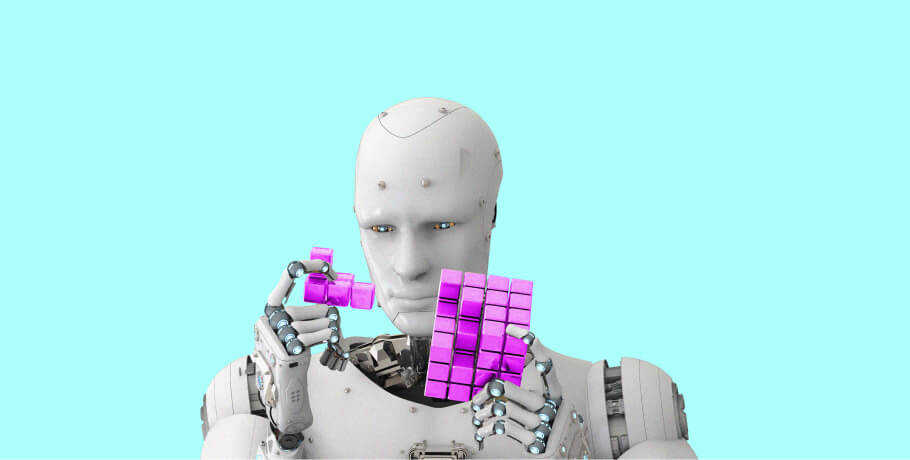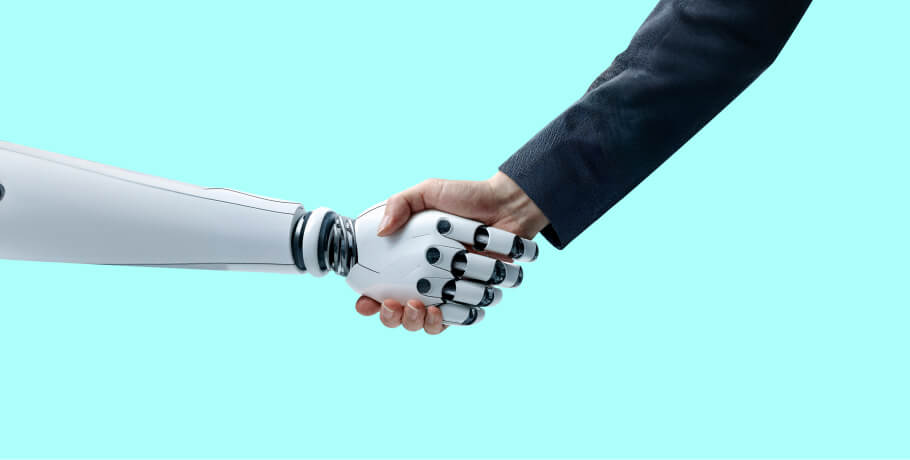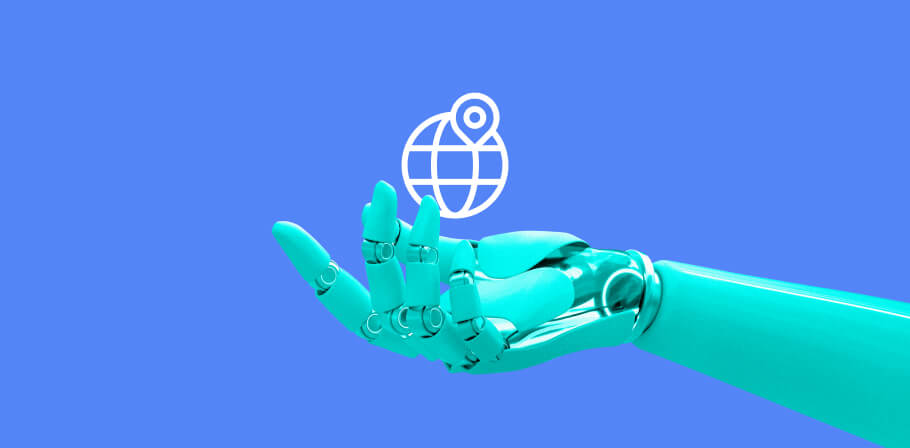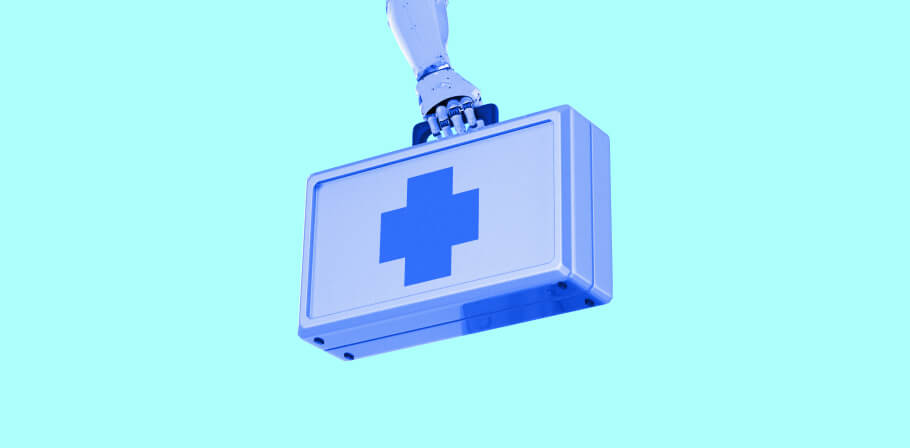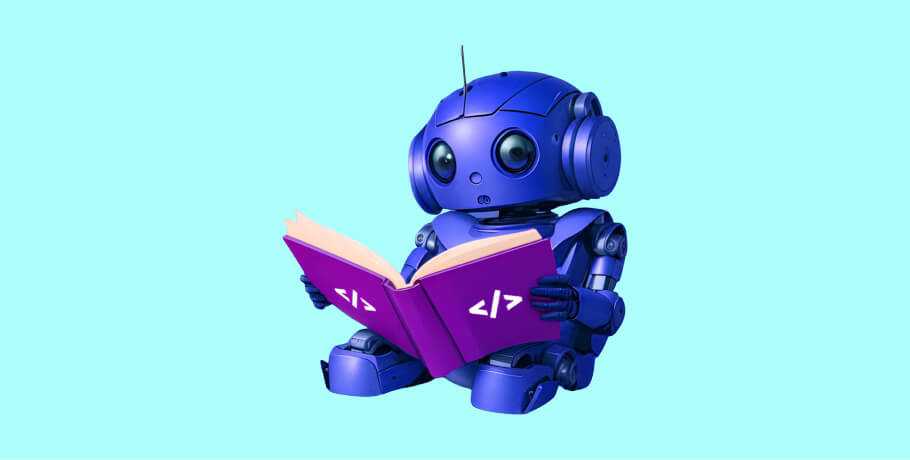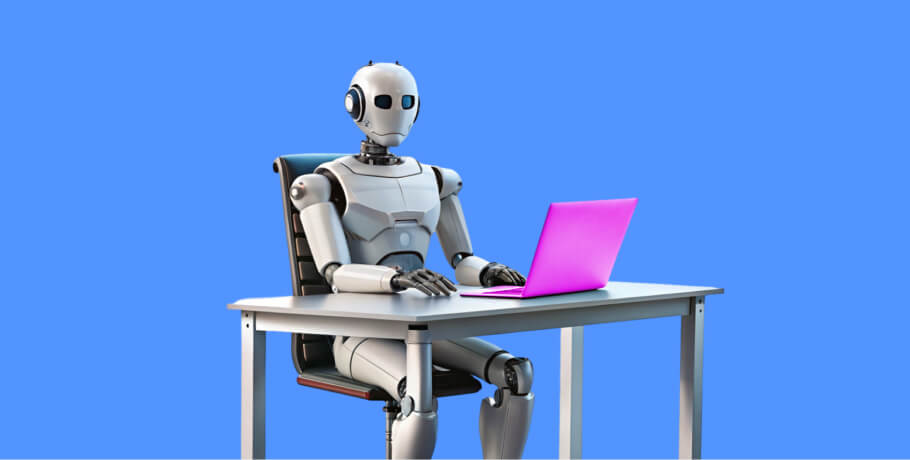"Artificial intelligence will steal your job." At least, that’s what many programmers wonder about with the current explosion of artificial intelligence (AI). And there is a good reason for such thoughts: generative AI-engine Chat GPT can now write usable code [1]. We've long since known that AI will bring new levels of economic productivity [2]. But how exactly will machine learning affect coding jobs?
Of course, the future of software engineering with AI remains unknown but we can make some predictions and hear what EPAM’s AI experts have to say on the subject.
Let's dive into some of the current impacts of generative AI, that way we can better answer the all-important question:
Are software engineers going to be replaced by AI?
“Is AI going to replace software engineers? One can choose their bet. The first perspective is that genAI has plateaued and no breakthrough can happen with the current LLM/transformer-based tech (and there are respectable opinions betting on this). Others say that scaling of LLMs hasn't reached the limits and we have yet to see the outcomes. For example, Microsoft alone is opening 2-3 GPU clusters monthly, each being equivalent in compute power to a top 3 supercomputer. If the second option turns out to be true, we might be in a position where an AI agent can work 24/7 producing more quality code than a typical software engineer. I haven't chosen my bet yet.”

What is genAI in software engineering?
To start, let's define generative AI. Generative AI is a subtype of intelligent machine systems focused on creating new content. While other machine learning categories (e.g. narrow, computer vision, or general AI) focus on replicating or replacing human efforts, generative AI creates new content. That includes text, video, image, and code.
GenAI can be applied to the field of software engineering. Code is a language, and language manipulation fits very well with the large language model (LLM) technologies that underpin genAI. With the computing power available to machines, AI can likely complete such natural language processing tasks better than humans.
For example, human software engineers can enter plain text prompts which an AI assistant can spin out as code snippets. Large language models can also make code syntax suggestions in the user’s native language. And thanks to deep learning and neural networks, it completes these tasks based on massive datasets far beyond the comprehension of a programmer. That has immense value and potential.
ADOPT GENAI FOR SOFTWARE ENGINEERING IN 12 WEEKS
Enroll in our EngX GenAI Adoption Program and see your team’s productivity soar by up to 40%.
How has genAI changed software development?
At the moment, we are seeing generative AI applied in the following ways:
- Code generation: genAI tools can create full or partial code lines based on human inputs. It combines written developer prompts and training code to spin out functions. Such a direct use case explains why Gartner predicts that up to 50% of enterprise software engineers will use ML-powered coding tools by 2027 [3].
- Code completion and suggestions: Since AI tools are trained on inputs, they can understand programming languages and best software engineering practices. That has led many software developers to use genAI for code autocompletion. Incorrect suggestions can be refuted, causing the engine to correct itself and suggest a better sequence.
- Bug detection: AI can analyze complex code patterns far better than humans. This offers clear benefits for software engineers as they find and fix bugs. Smart computers can assess historical patterns, compare against previous examples, and note strange syntax. That helps find the root problem, removing much of the trial and error of debugging.
- Code optimization: AI can assess current code and generate novel solutions. That could involve new architectures, code refactoring, and the intelligent use of automation. The combined efforts of humans and AI can help manage problems of scale and deployment.
- Documentation generation: Generative AI tools can easily create code documentation, a typically time-consuming task for software developers. Predefined templates help create standard write-ups, covering things like descriptions, use cases, troubleshooting, and parameter details. Better yet, if there are issues, developers can use natural language to suggest edits.
- Project management assistance: AI can impact project efficiency beyond the clear advantage of automating rote manual tasks. For example, prompts can supercharge brainstorming sessions and offer data for decision-making. Predictive analytics can alter resource forecasts. And cognitive tools can analyze and provide improvements for task backlogs. The management opportunities are abundant.
Will AI replace software engineers entirely?
With so many practical applications, AI-powered tools are clearly a benefit for the software development community. But that begs the question, can AI replace software engineers entirely? Machine learning can generate, fix, and suggest code, all with minimal human input. Does that render software engineers obsolete?
The answer to that question depends on how you value the work of generative AI. It is a tool, and it has its own strengths and weaknesses. Those traits will determine whether genAI can replace software engineers.
The pros of generative AI in software engineering
GenAI has some major implications for the productivity and SDLC optimization at multiple levels. So much as leading some experts to believe that genAI will indeed replace software developers in due time:
“Will genAI replace software engineers? I believe software engineering will become fully automated. Humans will only need to guide the development process by providing feedback and answering specific questions from the AI.”

Among the top benefits of applying genAI to software engineering processes are the following:
- Automation: Without a doubt, shifting routine tasks into the automated hands of AI is a crucial advantage. AI can manage these tasks far better than humans simply because it can process large datasets 24/7. Whether generating code or finding bugs, AI can complete (and possibly replace) specific manual engineer labor work efficiently.
- Productivity: AI is ideal for work augmentation, leading to productivity gains. From building new mockups to raw computing and analysis, AI can directly contribute to business value. GitHub research found that developers using GitHub Copilot coded up to 55% faster than those who did not [4].
- Cognitive insight: Artificial intelligence can learn from itself. Which means it can perform optimization equal to or better than humans. As it evolves into more dynamic applications (e.g. predictive analytics), it relies less on human judgment or input. Generative AI capabilities to track, diagnose, and improve issues without intervention reduce the need for engineers.
- Scale: AI applications can store, process, and compute data points at a rate that far surpasses humans. Chat-GPT.3, first announced in 2020, consists of 175 billion parameters [5]. Training GPT-4 required an estimated 21 septillion operations. And AI systems evolve rules from data with new inputs — in other words, they can adjust to the conditions, regardless of complexity. That makes it adept for scaling (whereas humans can tire as requirements expand).
- Self-healing: AI can continuously monitor and detect its own work. Predictive maintenance and root cause analysis occur while intelligent systems function. Adaptive algorithms work with feedback loops, requiring less input and correction from software engineers.
The cons of generative artificial intelligence
“GenAI won’t replace software developers. This cooperation between human engineers and AI tools will mostly cover copiloting development and LLM reinforcement.”

- Creativity: While adaptive, AI does not contain the conceptual understanding that humans do. Engineers can mix different fields of inquiry to innovate entirely new modes, a feat computers cannot achieve [6]. Humans also have emotional understanding and intuition, crucial aspects of highly complex problem-solving. AI does not possess these traits, limiting total effectiveness.
- Ethics: Smart machines do not comprehend ethics or morals. Empathy is a uniquely human trait that machine learning may try to replicate but fails to achieve [7]. With an emotional experience of consciousness, AI still requires human oversight. That is without mentioning the possible security risk or intellectual property abuse considerations.
- Context: In a similar vein, AI struggles with contextual awareness and critical thinking. Whereas a software engineer can peer into the needs and wants of its user and build accordingly, AI cannot emote or grasp the meanings behind a frame of data [8]. The nuance needed for social interaction (even if emulated well) is not yet available for machines.
- Relationships: Humans can consider goals outside the scope of a project. A software developer thinks about the work of others, opts for employee-centric management styles, and adjusts to the demands of stakeholders. AI often cannot reach these levels of high-level strategic planning or understand how to fully foster collaboration in the complex processes of custom software development. Case in point, employees overwhelmingly preferred the candor and empathy of humans during hiring and demotions rather than a machine [9].
When will AI replace programmers?
We don’t know. The development process requires skills and talents that only humans can perform. We still need ethical judgments and critical thinking. Human designs made with the consumer in mind are critical for customer satisfaction. And AI still makes too many mistakes and errors to completely replace the need for engineers [10].
That said, artificial intelligence and machine learning will revolutionize how we work. Code assistance will result in simple and more accurate syntax. Automated code generation means projects can progress faster. And the computing power of machines will assist with analysis, testing, and debugging.
In reality, humans and AI are an ideal collaboration. While software engineers will focus on more creative, interpersonal tasks, artificial intelligence can handle routine tasks and productivity enhancements. Software engineers’ jobs are safe. They simply will change.
MAXIMIZE YOUR ROI WITH GENAI ADOPTION
Explore how genAI can deliver significant returns on investment by enhancing productivity, reducing costs, and improving software quality.
The future of programming
It may be a relief to know that AI cannot replace software developers. But what about in the future? AI continues to accelerate at an exponential pace (Chat-GPT noted all the way back in 2018 a 3.4-month compute doubling time since 2012, a growth of 300,000x [11]). Could AI surpass its current limitations? And what does that mean for the future of software engineers?
At the moment, general artificial intelligence that has the problem-solving skills of a human is a speculative idea. A machine that can surpass human creativity is a long way off (or not even possible). And that is even assuming humans want to work with fully cognitive machines. Forecasting when and how AI can replace software developers includes too many assumptions.
What we can predict is the continued synthesis of AI into human workstreams. That will likely drive future benefits in four key areas:
- Faster development: AI and its productivity enhancements will continue to support developers. That in turn will lead to faster development timelines achieved with fewer resources. Companies may hire less engineers since AI can do the heavy lifting. And yet, AI still needs supervision. The greatest change will likely be seen in a skill requirement shift.
- Improved quality: AI will become a primary tool in a developer's toolkit. That will lead to better-educated software developers and higher-quality products. Already machines can make personalized learning services. And engineers will use AI to monitor code for mistakes, errors, and strange syntax. The rapid pace of change brought about by AI will undoubtedly support continuous learning principles.
- Innovation: AI will lift the burden of work off of developers. That will free up most engineers to focus on creative tasks. Roles will change as developers become high-level designers, while AI takes on repetitive tasks. Your smart machine will operate as AI-assisted DevOps.
- Integration: AI will work as a bridge to other novel technologies. Whether that includes quantum computing or new work in IoT, AI can contribute to technological evolution and integration. These technical connections will help drive the industry forward.
Bring in the future closer with our EngX GenAI Adoption Program
For startups and small businesses, AI augmentation offers a new frontier of productivity. AI-assisted engineering can integrate into numerous aspects of your software development lifecycle, from test code generation to application logic implementation. And with great results: software engineering teams that used our Engx GenAI adoption program enhanced efficiency by up to 42%.
Our 12-week pilot program demonstrates the potential of generative AI for software development teams. Your software developers can familiarize themselves with the new AI tools, all while being supported with coaching and training by EPAM experts. Baseline productivity metrics are captured during that time before we deliver tailored use cases of AI that fit your business needs.
In essence, the EPAM EngX GenAI program kickstarts your genAI transformation. We found that our client with GitHub Copilot earned up to a 15% productivity boost. We’ve seen the development cycle velocity increased by 34% after integrating a genAI ecosystem.
Free up resources, reduce the likelihood of application rework, and build for cost-efficient development.
Conclusion
Will AI replace software engineers? No, AI won’t render software engineers obsolete. But it will require adaptability and upskilling.
AI is a new technology (one that is in high demand), and it is changing what it means to be in software development. Those who develop relevant skills and enhance their teams will gain a clear competitive advantage in the AI-augmented landscape.
Still, AI transformation is complex. Consider hiring EPAM Anywhere as a technical partner, that way you capture the benefits of AI — without the hassle.
Contact us to jump-start your AI-assisted engineering. You will take a guided tour of our EngX GenAI Adoption Program to discover the benefits of partnering with EPAM.
FAQ
References
- Will AI Render Programming Obsolete? (The MIT Press Reader)
- The economic potential of generative AI: The next productivity frontier (McKinsey)
- Gartner Hype Cycle Shows AI Practices and Platform Engineering Will Reach Mainstream Adoption in Software Engineering in Two to Five Years (Gartner)
- How generative AI is changing the way developers work (GitHub)
- OpenAI Presents GPT-3, a 175 Billion Parameters Language Model (OpenAI)
- AI is a powerful tool, but it's not a replacement for human creativity (World Economic Forum)
- In principle obstacles for empathic AI: why we can’t replace human empathy in healthcare (AI & Society)
- Leaders Looking To Leverage AI Need To Think About Context (Forbes)
- The Best Leaders Can’t Be Replaced by AI (Potential Project)
- Generative AI Errs Differently Than Classical AI (Forbes)
- AI and compute (OpenAI)

Expert digital communicator and editor providing insights and research-based guides for technology buyers globally.
Expert digital communicator and editor providing insights and research-based guides for technology buyers globally.
Explore our Editorial Policy to learn more about our standards for content creation.
read more